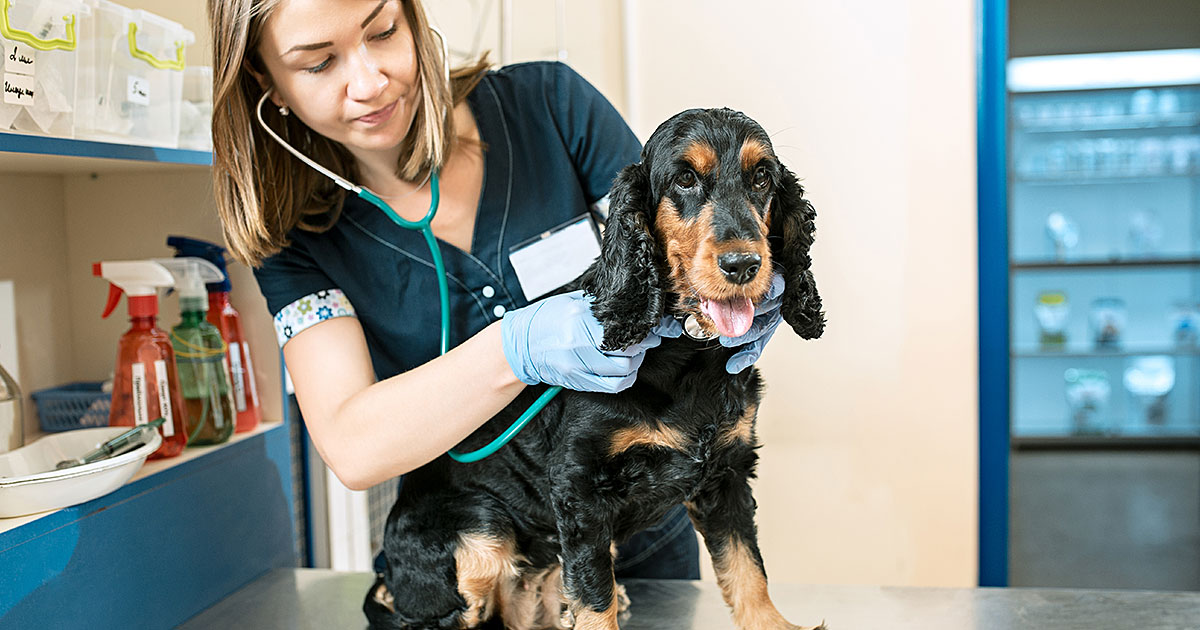
The Importance of Regular Vet Visits for Your Pet’s Health
Regular vet visits are a cornerstone of your pet’s overall health and well-being. They help identify potential health issues early, ensure timely vaccinations, and provide professional guidance on nutrition and care. This article explores why routine check-ups are essential for pets of all ages, promoting a longer, healthier, and happier life for your furry companion.
🐶 Pet Star
12 min read · 26, Jan 2025

1. Why Are Regular Vet Visits Important?
Veterinary visits are essential for several reasons:
- Preventive Care: Regular check-ups help detect issues early, preventing them from becoming serious or life-threatening.
- Vaccinations: Keeping up with vaccinations protects your pet from common diseases like rabies, parvovirus, and feline distemper.
- Parasite Control: Vets can identify and treat issues like fleas, ticks, and internal parasites that might otherwise go unnoticed.
- Dental Health: Routine dental exams prevent oral health issues, which can lead to pain, infection, or systemic diseases.
- Tailored Advice: Vets offer personalized guidance on diet, exercise, and lifestyle based on your pet’s specific needs.
2. What to Expect During a Routine Vet Visit
A regular vet visit typically includes the following steps:
- Physical Examination:
- The vet checks your pet’s weight, coat condition, eyes, ears, and teeth.
- They palpate the abdomen and listen to the heart and lungs.
- Vaccination Updates:
- Ensures your pet is up to date on essential vaccines.
- Provides protection against region-specific diseases.
- Parasite Screening:
- Tests for internal parasites using stool samples.
- Recommends treatments for fleas, ticks, and heartworms.
- Discussion of Behavioral and Lifestyle Concerns:
- Offers advice on training, exercise, and managing behavioral issues.
3. The Role of Preventive Care in Your Pet’s Health
Preventive care is a proactive approach to ensure long-term health:
- Wellness Exams: Annual or biannual exams help catch issues like obesity, diabetes, or arthritis early.
- Blood Work: Routine blood tests check organ function and can reveal hidden conditions.
- Spaying/Neutering: Helps control the pet population and reduces risks of certain cancers and infections.
- Nutrition Counseling: Vets can recommend diets tailored to your pet’s age, breed, and activity level.
4. The Importance of Early Detection
Early detection is key to effective treatment and better outcomes. Here’s why:
- Cost-Effective: Addressing a condition early is often less expensive than treating it in advanced stages.
- Improved Prognosis: Early intervention increases the chances of recovery.
- Enhanced Quality of Life: Identifying issues like arthritis or dental disease early helps manage pain and discomfort.
5. How Often Should Your Pet Visit the Vet?
The frequency of vet visits depends on your pet’s age and health:
- Puppies and Kittens: Require frequent visits during their first year for vaccinations, deworming, and growth monitoring.
- Adult Pets: Annual check-ups are sufficient for most healthy adult pets.
- Senior Pets: Older pets benefit from biannual visits to monitor age-related conditions like arthritis, kidney disease, or diabetes.
6. Overcoming Barriers to Regular Vet Visits
Many pet owners hesitate to schedule regular check-ups due to:
- Cost Concerns: Preventive care can save money in the long run by avoiding expensive treatments. Consider pet insurance to offset costs.
- Time Constraints: Booking appointments in advance and choosing nearby clinics can help manage time.
- Stressful Experiences: Vets can offer tips to reduce pet anxiety during visits, such as crate training or calming aids.
7. Building a Relationship with Your Veterinarian
Developing a strong rapport with your vet benefits both you and your pet:
- Open Communication: Share any concerns about your pet’s health or behavior without hesitation.
- Consistency: Visiting the same vet ensures continuity of care and better understanding of your pet’s medical history.
- Trust: A good vet will prioritize your pet’s well-being and offer honest, professional advice.
8. Signs It’s Time to Visit the Vet
In addition to routine check-ups, you should schedule an appointment if your pet exhibits:
- Changes in appetite or weight.
- Vomiting or diarrhea lasting more than 24 hours.
- Persistent coughing, sneezing, or difficulty breathing.
- Lethargy or noticeable behavioral changes.
- Limping, swelling, or visible injuries.
Q1: Why are routine wellness exams important?
Ans) Routine wellness exams detect potential health issues early, prevent diseases through vaccinations, and provide guidance on nutrition and care tailored to your pet’s needs.
Q2: How can I reduce my pet’s anxiety during vet visits?
Ans) Use a comfortable carrier, bring familiar toys or blankets, and stay calm. Some vets offer fear-free services designed to minimize stress.
Q3: What vaccinations are essential for my pet?
Ans) Core vaccines for dogs include rabies, distemper, and parvovirus. For cats, rabies, feline distemper, and feline leukemia are crucial. Consult your vet for region-specific recommendations.
Q4: How often should senior pets visit the vet?
Ans) Senior pets should visit the vet at least twice a year for comprehensive exams, as they’re more prone to age-related health issues.
Q5: Can I rely on online advice instead of vet visits?
Ans) While online resources can be helpful, they cannot replace professional veterinary care. Only a vet can provide accurate diagnoses and tailored treatment plans.
Similar Articles
Find more relatable content in similar Articles
Explore Other Categories
© 2024 Copyrights by rPets. All Rights Reserved.